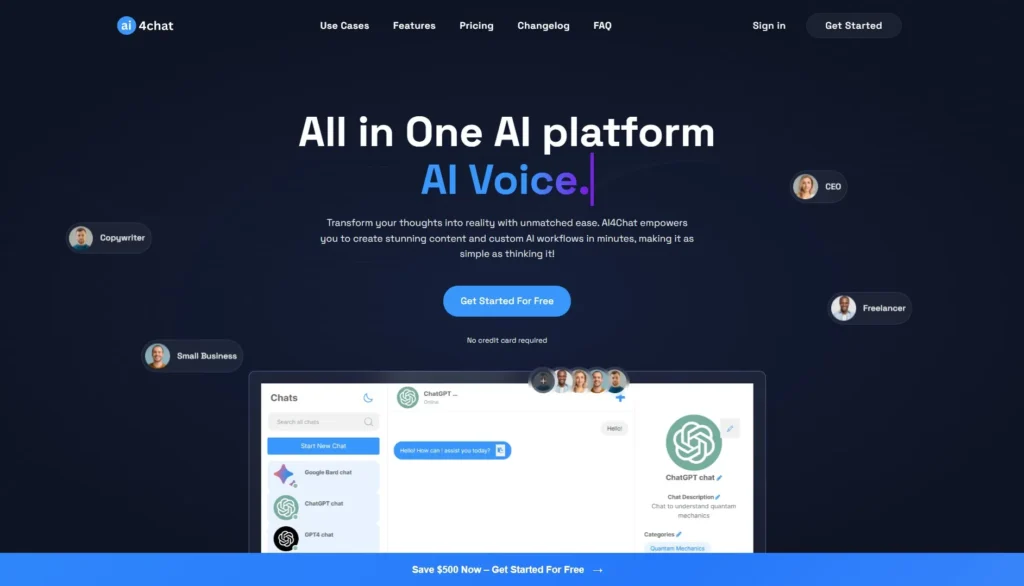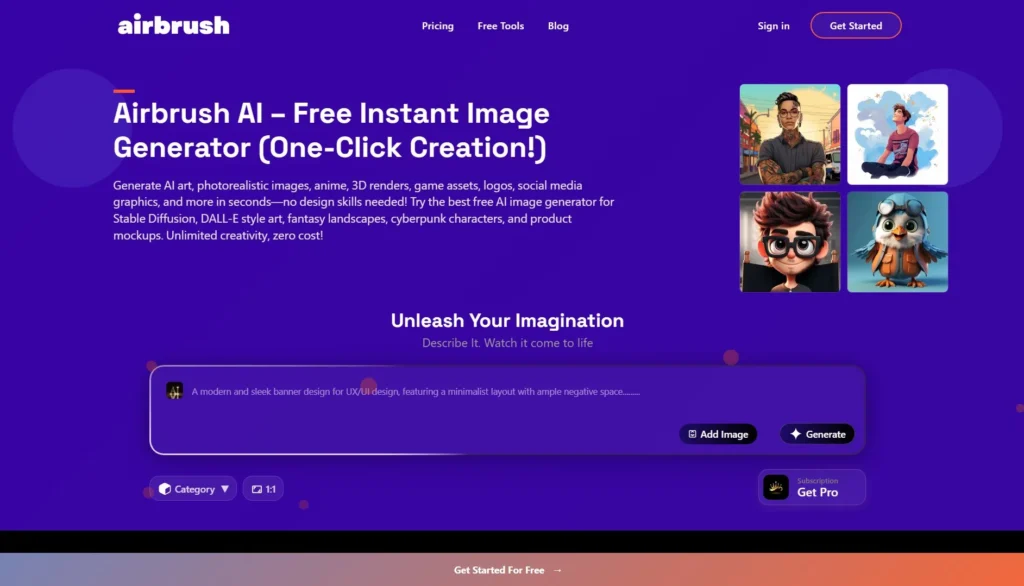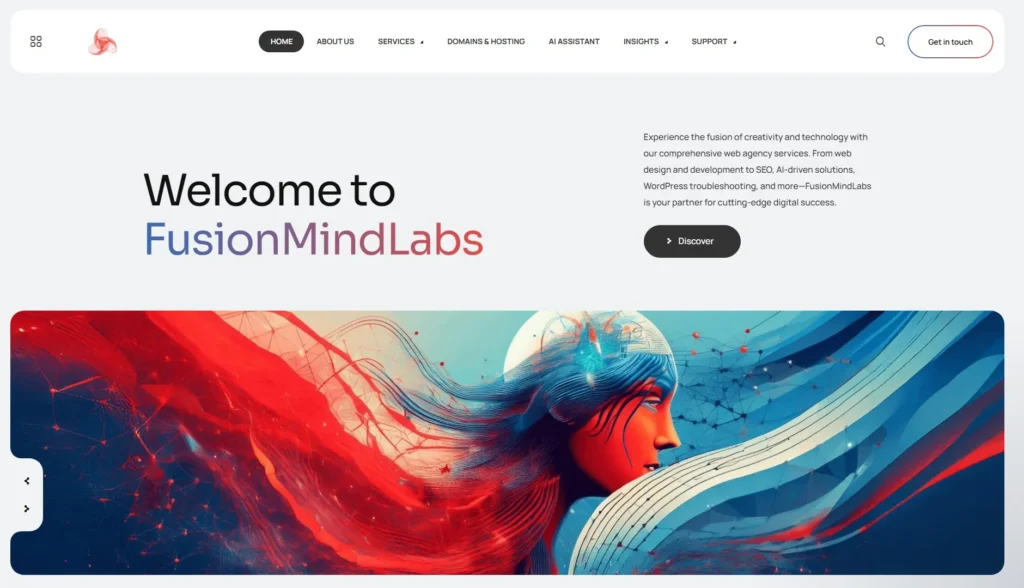
Imagine this: At eleven p.m., a consumer contacts your company with an urgent query. They get a prompt, helpful response that completely resolves their issue rather than having to wait until work hours. They receive a customized follow-up the next day along with more resources they were unaware they required. They feel as though you read their minds when you offer them a complimentary service a week later.
This is the actual 2025 customer experience driven by AI; it is not science fiction.
It’s not always the companies with the largest staff or expenditures that are winning nowadays. Customers can’t imagine dealing with anybody else because of the smooth, customized, and responsive customer experiences they’ve created with artificial intelligence. These companies have made a groundbreaking discovery: AI doesn’t make customer service less human; on the contrary, when applied properly, it makes every connection feel more intimate than before.
Automation is only one aspect of the change. Businesses can now better understand their customers, anticipate their wants before they are articulated, and provide value in ways that genuinely connect with them emotionally thanks to artificial intelligence. Customer loyalty that withstands market shifts and competition pressure is the end result.
The Customer Experience Crisis That AI Solves
Consumers today have never-before-seen standards for corporate dealings. They anticipate flawless interactions across all touchpoints, prompt responses, and individualized attention. In the meantime, customers have countless options at their fingertips and have no tolerance for companies who are unable to satisfy their changing requirements.
For conventional commercial processes, this poses an impossibility. Most firms simply cannot afford the resources needed to provide really individualized, responsive customer care. It soon becomes unaffordable to hire enough customer care agents to cover all hours of the day and night, train them to know every detail of the product, and provide them with the resources they need to provide individualized experiences.
Response time expectations have significantly accelerated. Consumers anticipate prompt attention to their questions and prompt resolution of their problems. Customers used to quick digital gratification are finding traditional customer service methods, with their business-hour restrictions and queue management systems, to be progressively antiquated.
Personalization demands keep rising as consumers grow used to services like Netflix, Amazon, and Spotify that appear to know their tastes better than they do. Regardless of size or industry, business clients today demand the same degree of individualized attention from every organization they deal with.
Consistency requirements Businesses are challenged to provide consistent experiences across several touchpoints, whether clients communicate via social media, email, phone calls, or website interactions. In the past, maintaining service quality and brand voice across all of these channels took a great deal of coordination and training.
Proactive service expectations imply that rather than only fulfilling specific demands, buyers now expect firms to anticipate their requirements. This could entail making recommendations for related goods, offering pertinent instructional materials, or seeing possible problems before they become serious ones.
How AI Transforms Customer Relationships
By giving companies superhuman skills to comprehend, predict, and react to client wants, artificial intelligence helps to overcome these difficulties. Small firms may now provide customer experiences that are comparable to those of their much larger rivals thanks to the transition.
Intelligent response systems can quickly and accurately respond to consumer questions, frequently outperforming human customer support agents. These systems can recall past exchanges, comprehend context, and retrieve extensive product and service data to deliver comprehensive responses.
Predictive customer insights help businesses anticipate client demands by analyzing behavior patterns, purchase history, and interaction data. This skill provides proactive service delivery that delights clients and fosters loyalty through unexpected value.
Personalization at scale becomes achievable when artificial intelligence can assess individual consumer preferences and personalize communications, recommendations, and service approaches to each person’s unique demands and communication style.
Continuous availability reduces the irritation of business-hour constraints, allowing customers to seek assistance, make purchases, or access information whenever it is convenient for them, rather than when it is convenient for your business operations.
Essential AI Tools for Superior Customer Experience
The AI customer experience landscape includes specialized tools for various parts of customer relationship management. Understanding how these tools work together helps firms develop comprehensive customer experience strategies.
Writecream: Personalized Communication at Scale

Customer communication is one of the most time-consuming areas of relationship management, yet it is essential for developing loyalty and trust. Every email response, social media contact, and follow-up message takes thought and personalization, which manual methods fail to give on a large scale.
Writecream’s Social Media Ad Copy Generator goes beyond advertising to enable full consumer communication initiatives. The platform may generate personalized responses, educational content, and relationship-building messages that keep your brand voice while catering to particular client demands.
Writecream’s ability to develop compassionate, helpful comments that appear genuine rather than plainly mechanical is especially useful in customer service contexts. The platform understands how to address consumer complaints, give appropriate answers, and retain strong relationships even in difficult situations.
For businesses using Facebook for customer service and engagement, Writecream’s Facebook Ad Copy Generator helps create responses and content that align with the platform’s conversational culture while maintaining professional brand standards.
The tool’s true strength lies in its capacity to produce consistent, high-quality consumer communications across all touchpoints. Whether answering to support tickets, generating educational content, or crafting client onboarding sequences, Writecream contributes to the human attention that fosters loyalty.
AI4Chat: Comprehensive Customer Intelligence

Understanding your customers deeply enough to anticipate their needs requires analysis capabilities that manual processes simply cannot provide. AI4Chat’s versatile applications demonstrate how artificial intelligence can serve as a comprehensive customer intelligence platform.
The platform excels in analyzing customer feedback, identifying service improvement possibilities, and recommending proactive engagement techniques based on consumer behavior patterns. This intelligence enables organizations to anticipate client wants rather than simply react to voiced issues.
AI4Chat helps businesses manage complex customer journeys by coordinating touchpoints across many channels and time periods. The technology may recommend the best time for follow-up contacts, uncover opportunities for value-added services, and even predict when customers will examine competing options.
When AI4Chat analyzes behavior patterns and identifies audience groupings that would otherwise go undetected by traditional demographic analysis, customer segmentation and targeting become much more complex. These information allow for individualized marketing and service tactics that feel incredibly relevant to each consumer category.
Airbrush AI: Visual Storytelling That Builds Emotional Connections

Customer experience increasingly depends on visual communication that creates emotional connections and supports brand storytelling. Airbrush AI enables businesses to create compelling visual content that enhances every customer interaction.
The platform’s expertise of visual psychology enables it to develop visuals that complement certain customer experience goals. Whether it’s generating trust with professional pictures, producing excitement with dynamic visuals, or offering clarity with instructive graphics, Airbrush AI creates material that serves strategic reasons beyond appearance.
AI-generated visual content is extremely useful for customer education and assistance. Complex product features, service processes, and troubleshooting instructions become much more accessible when they are accompanied by clear, professional images that assist customers in understanding and succeeding.
Brand consistency across all visual touchpoints is made simple when Airbrush AI maintains design standards while changing material for diverse settings and objectives. This consistency strengthens brand identification and trust throughout the customer relationship.
FusionMindLabs: Technical Excellence That Supports Customer Satisfaction

Outstanding customer experiences depend on reliable technical infrastructure that supports fast, secure, and seamless interactions. FusionMindLabs specializes in creating technical environments optimized for superior customer experience delivery.
Slow-loading pages or technical issues have a direct impact on consumer satisfaction, creating poor impressions that can harm relationships before they even begin. FusionMindLabs ensures that your digital presence delivers a smooth, professional experience that boosts client confidence.
Businesses can use bespoke development to create one-of-a-kind customer experience solutions that set them apart from their competition. Customer portals, automated service delivery systems, and integration platforms that integrate numerous business tools to create seamless customer-facing workflows are examples of this.
WordPress optimization is especially critical for content-driven customer experience strategies. As AI tools make it easier to develop educational content, resource libraries, and customer support resources, your website must efficiently arrange and provide this information to clients when they require it.
Industry-Specific Customer Experience Strategies
Different industries face unique customer experience challenges that AI tools can address through specialized applications and strategic approaches.
E-commerce businesses Benefit from AI-powered product suggestions, automated customer service for common questions, and targeted marketing to help customers make complex purchasing decisions. The combination of intelligent product discovery and proactive customer care results in shopping experiences that foster loyalty and encourage repeat purchases.
Service providers AI can be used to automate appointment scheduling, make individualized service recommendations, and sustain relationships between service appointments by providing relevant content and communicating proactively. This technique transforms transactional interactions into long-term collaborations.
B2B companiesUtilize AI for lead nurturing, educational content distribution, and account management support. The technology enables tiny B2B firms to offer the consulting support and thought leadership that enterprise customers expect from much larger companies.
Local businesses Use artificial intelligence to compete with national chains by offering individualized attention and community participation that larger competitors cannot match. AI solutions automate regular tasks, allowing owners to focus on relationship building and community involvement.
Advanced Customer Experience Optimization
As firms gain confidence in fundamental AI customer experience technologies, advanced strategies can provide further competitive advantages and relationship-building opportunities.
Predictive customer service employs artificial intelligence to anticipate possible issues before they occur, allowing for proactive outreach that avoids unhappiness and exhibits outstanding attention to consumer needs.
Dynamic personalization Adapts customer interactions depending on real-time behavior, preferences, and circumstances. This could include tailored online experiences, individualized product recommendations, or communication timing optimization.
Emotional intelligence integration enables AI systems to understand client emotional states and change interactions accordingly. Frustrated consumers receive more sympathetic replies, delighted customers receive joyous involvement, and puzzled customers receive further assistance and explanation.
Cross-channel orchestration Coordinates customer experiences across all touchpoints, resulting in smooth, consistent connections regardless of how customers interact with your company.
Measuring Customer Experience Success
AI-powered customer experience strategies require comprehensive measurement approaches that capture both quantitative performance data and qualitative relationship indicators.
Customer satisfaction metrics track how AI enhancements affect overall customer happiness, loyalty, and advocacy. These measurements help ensure that operational efficiency gains translate into better customer relationships rather than more impersonal interactions.
Response time improvements measure how AI tools affect your ability to address customer needs quickly and completely. Faster response times often correlate with higher satisfaction and increased customer lifetime value.
Resolution quality assessments evaluate whether AI-assisted customer service actually solves customer problems effectively rather than just responding quickly. The goal is optimizing for customer success rather than just operational efficiency.
Relationship depth indicators track how AI-powered personalization affects customer engagement, repeat purchase rates, and referral generation. These metrics help assess whether technology enhancements are building stronger business relationships.
Building Customer-Centric AI Strategies
Successful customer experience automation focuses on enhancing relationships rather than just improving operational efficiency. This customer-centric approach ensures that AI implementation supports long-term business growth through loyalty and advocacy.
Customer journey mapping helps identify where AI can provide the greatest impact on customer satisfaction and business results. Focus on touchpoints that significantly influence customer perceptions and decision-making processes.
Feedback integration systems ensure that customer input continuously improves your AI-powered experience delivery. Regular surveys, review monitoring, and direct feedback collection help refine AI systems based on actual customer preferences rather than assumptions.
Human escalation protocols define when customer interactions should transition from AI assistance to human attention. Complex issues, emotional situations, or high-value relationships often benefit from personal attention that AI supports but doesn’t replace entirely.
Continuous optimization processes use performance data and customer feedback to refine AI systems over time. The most successful implementations treat AI customer experience as an evolving capability that improves through experience and data analysis.
The Future of AI-Powered Customer Experience
Emerging technologies promise even more sophisticated customer experience capabilities that will further differentiate businesses willing to embrace AI innovation.
Conversational AI advancement will enable more natural, context-aware customer interactions that feel increasingly indistinguishable from human conversation while providing superior knowledge access and response consistency.
Omnichannel intelligence will coordinate customer experiences across all touchpoints—website, mobile app, social media, email, phone, and even physical locations—creating truly seamless relationships regardless of interaction channel.
Predictive relationship management will anticipate customer lifecycle stages and automatically adjust service approaches to support retention, expansion, or reactivation objectives based on individual customer patterns and preferences.
Emotional AI integration will help customer experience systems recognize and respond appropriately to customer emotional states, providing empathetic support during difficult situations and celebrating successes during positive interactions.
Conclusion: The Customer Experience Revolution
Businesses who employ artificial intelligence to create excellent customer experiences will succeed in 2025 and beyond, since competitors will be unable to match them using traditional methods alone.
This shift is not about replacing human empathy with robotic efficiency; it is about combining AI skills with human insight to provide exceptional customer service while establishing long-term competitive advantages.
The following tools are available: Writecream for personalized communication, AI4Chat for consumer intelligence, Airbrush AI for visual engagement, and FusionMindLabs for technical excellence. Real-world success stories from many industries demonstrate the tactics’ effectiveness.
Customers are already receiving AI-powered service from your competition. Businesses will triumph if they apply these capabilities deliberately, strategically, and with genuine dedication to customer success rather than merely operational efficiency.
The customer experience revolution is here. Your competitive advantage depends on whether you’ll lead it or be left behind by it. The choice is yours, but your customers are already making theirs by choosing businesses that understand and meet their evolving expectations.
Build the customer experience your business deserves. Your future success depends on it.